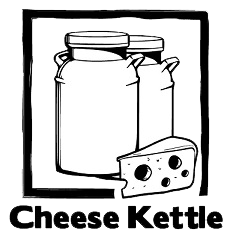If you have been asking if eating cheese is bad to your health, well the answer is both yes and no. Cheese is a very popular dairy product and easily accessible in grocery stores. Perhaps, you may even have a block of cheese stored in your refrigerator.
But since not all cheeses are the same, it makes sense to be conscious of our health and pay attention to our diet.
First, let’s look at the potential risks of consuming cheese.
1. Saturated Fats
Cheese, particularly the processed American cheese has become American’s largest source of saturated fats. There is no wonder why Americans are suffering from obesity pandemic. Saturated fats are not healthy and eating those pizzas with saturated fats toppings that contain about 2/3 of the recommended daily intake is harmful to health. Not only does it lead to obesity, but also diabetes and heart disease.
2. High Sodium Content
Most cheeses that are available in stores have a lot of sodium which can increase the risk of high blood pressure and other heart-related issues. When shopping for cheese, make sure to look at the label and the portion size of the sodium content. Most soft cheeses are low in sodium compared to hard cheeses.
3. Constipation
Eating large portions of cheese can increase the risk of stomach issues, especially if you are lactose intolerant. Even if the cheese has lower lactose content, there should be a limit that your body should take. If you consume lactose more than your body can digest, it can lead to gastrointestinal problems such as gas, bloating, and constipation.
4. Increased risk of Diabetes and Heart Disease
Cheese contains saturated fat and cholesterol. Consuming too much cheese can lead to cardiovascular problems. If you have diabetes, try eating low-fat cheese in moderation. The calories you get from is harmful to the body and these are not easy to eliminate even if you exercise.
Now, let’s look on the other side.
Health Benefits of Cheese
1. Bone Health
Cheese is a great source of protein, calcium, zinc, magnesium, and vitamin A. These essential nutrients contribute to healthy bone development in both children and adults. Consumption of cheese is also helpful to prevent osteoporosis.
2. Dental Health
Not only calcium helps strengthen the bones, it also plays an important role in tooth formation. Eating cheese can prevent tooth decay because cheese is known to raise pH level in dental plaque, protecting the teeth against cavities.
3. Maintaining a healthy weight
Eating low-fat cheese can help you control weight. Packed with natural fats, proteins, calcium, and minerals, cheese builds more muscles, makes bone stronger, and stabilizes metabolism. Studies have shown that higher BMI (body mass index) is attributed to low levels of calcium. Adding cheese to your diet leads to healthy weight management.
What Types of Cheese are best for Health?
1. Mozzarella
Calcium: 14% of the RDI
Carbs: 1 gram
Protein: 6 grams
Sodium: 176 mg — 7% of the Reference Daily Intake (RDI)
Fat: 6 grams
Calories: 85
Mozzarella is a soft, white, and less-aged cheese which means it has low sodium content. With 200mg of calcium per serving, it’s packed with nutrients helpful to the body. You can add mozzarella to salads, sandwiches, omelets, and other dishes.
2. Feta Cheese
Calcium: 10% of the RDI
Carbs: 1 gram
Protein: 6 grams
Sodium: 370 mg — 16% of the RDI
Fat: 5 grams
Calories: 80
Feta cheese is a soft, creamy, white cheese which originated from Greece. It is usually made from sheep and goat’s milk, giving it a sharp and tangy taste. Feta may be high in sodium because it is packaged in brines to preserve its freshness. However, it is low in calories which means it’s good for adults. You can simply add it to salads, fresh vegetables, and eggs.
3. Parmesan
Calcium: 34% of the RDI
Carbs: 3 grams
Protein: 10 grams
Sodium: 330 mg — 14% of the RDI
Fat: 7 grams
Calories: 110
Parmesan is one of the most popular types of cheese. Grated parmesan is often added to pizzas and pastas. You can also sprinkle it on salads, fruits, and eggs. Parmesan cheese has a hard texture and a nutty, salty flavour. It is rich in calcium and phosphorus – essential nutrients for bone formation.
4. Swiss
Calcium: 25% of the RDI
Carbs: less than 1 gram
Protein: 8 grams
Sodium: 53 mg — 2% of the RDI
Fat: 9 grams
Calories: 111
Swiss cheese is a semi-hard cheese which originated from Switzerland. It is typically made from cow’s milk, giving it a nutty and mild taste. The distinct feature of Swiss cheese is its holes (eyes) which are formed by bacteria during the fermentation process. It is lower in fat and sodium, making it good for people who have high blood pressure. You can add it to burgers, sandwiches, egg bakes, and soups.

